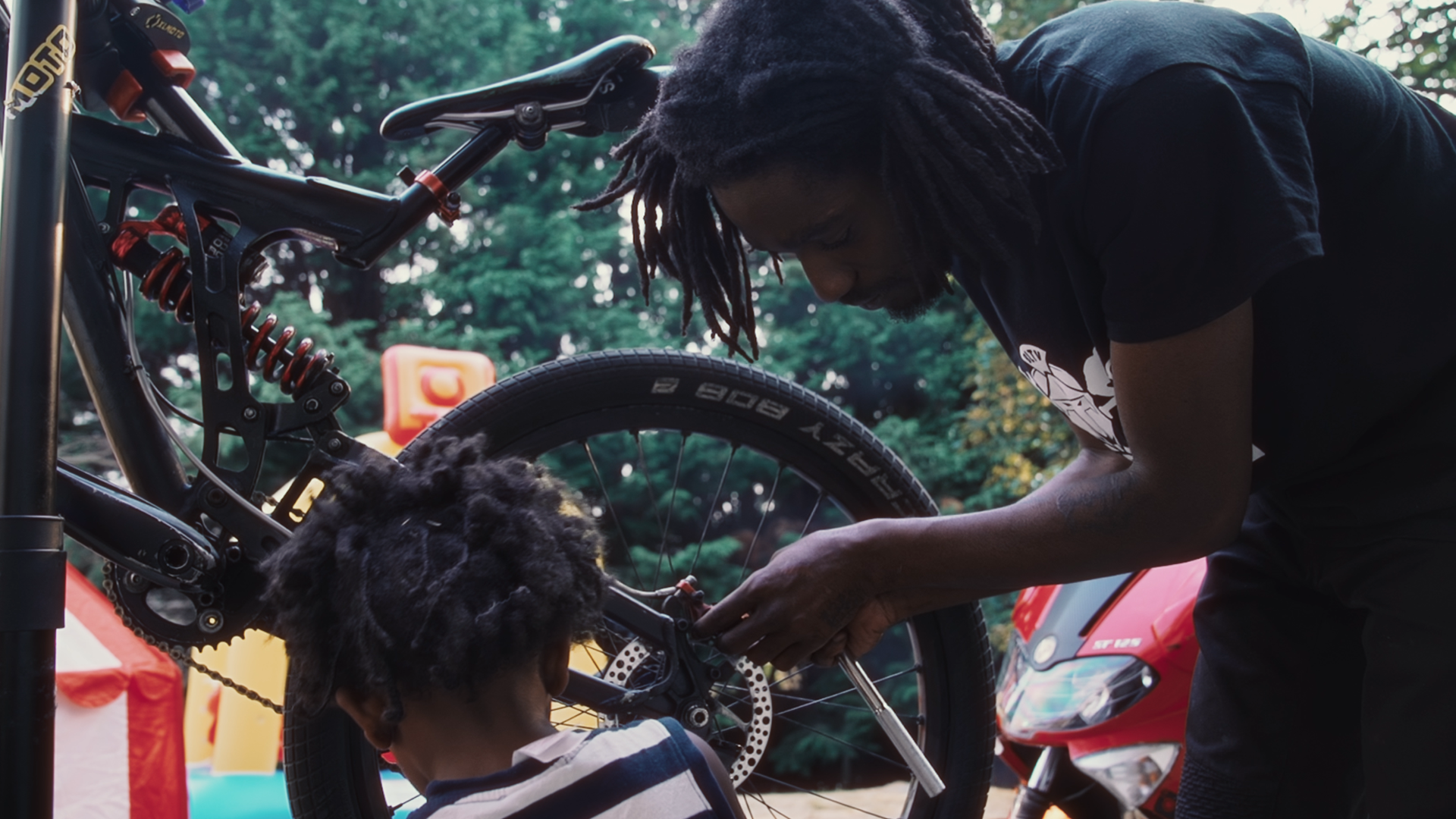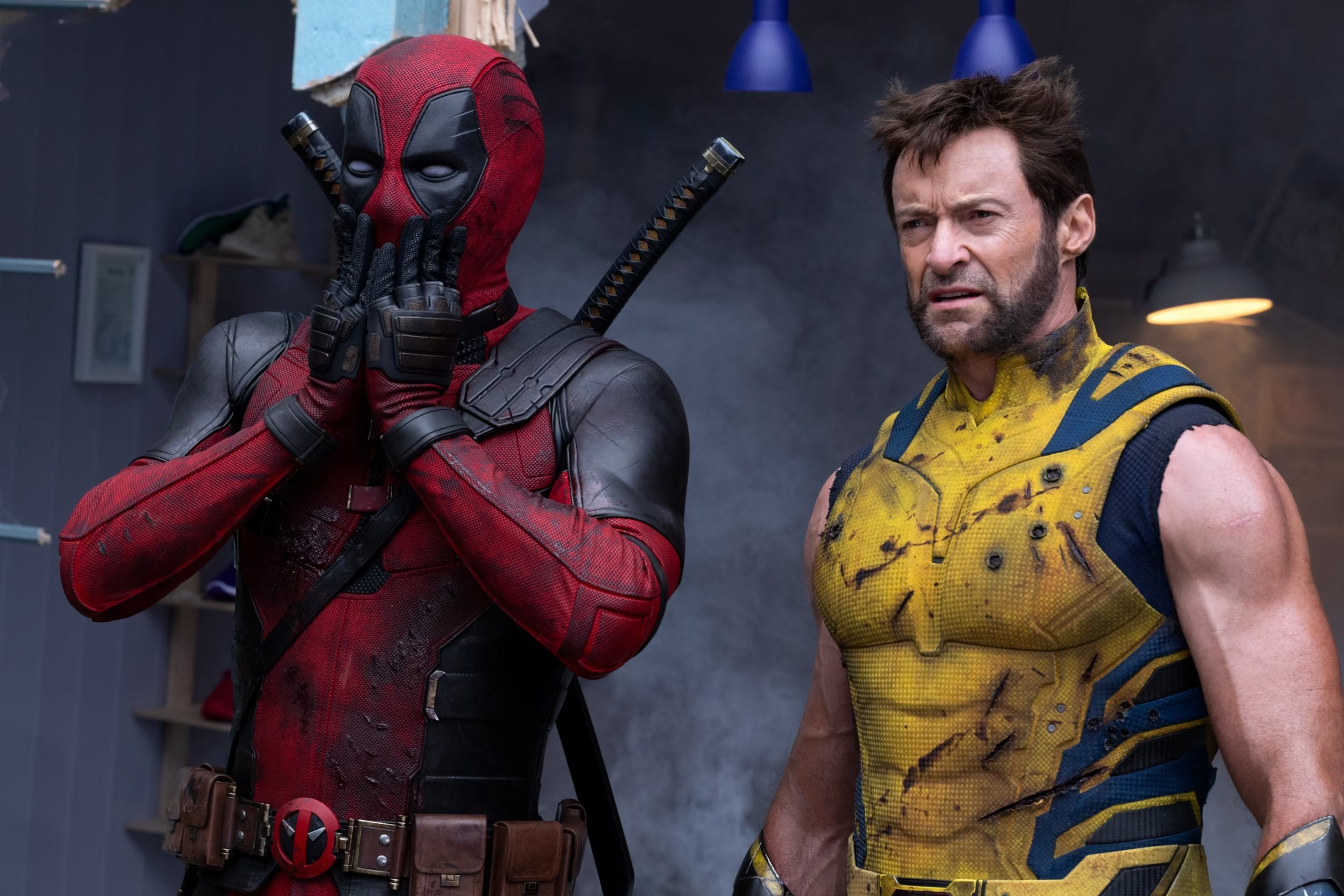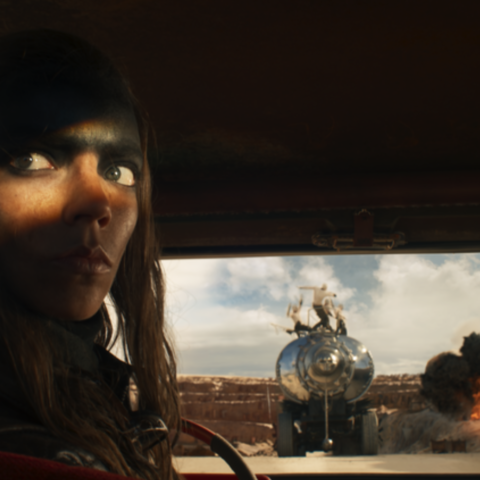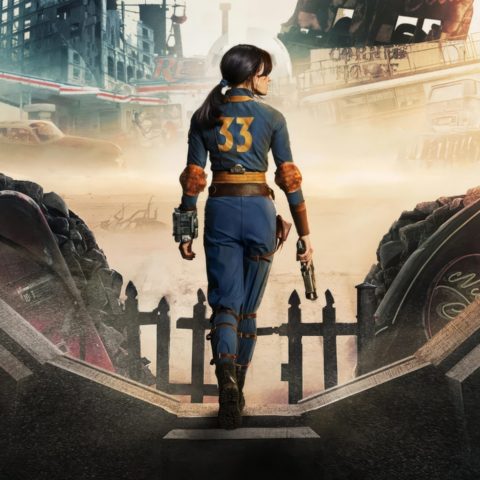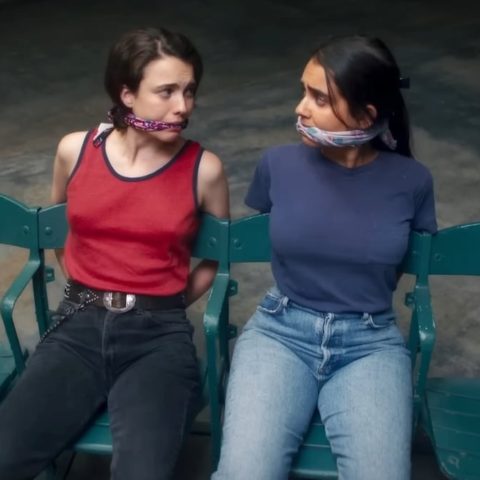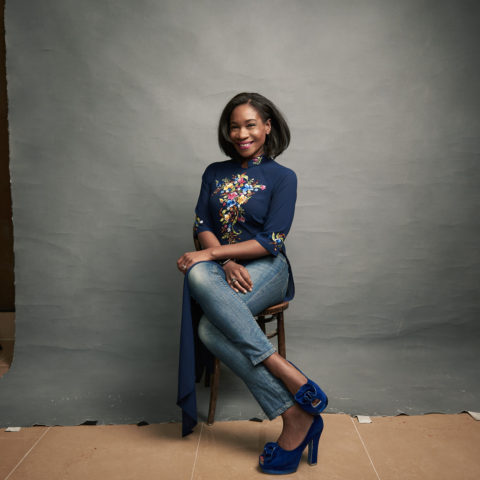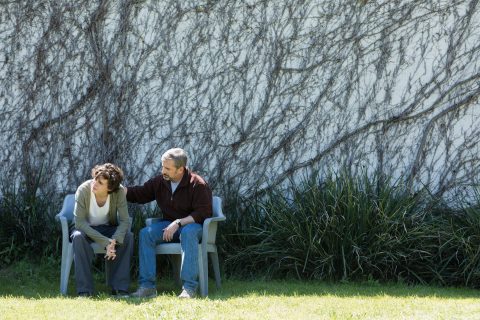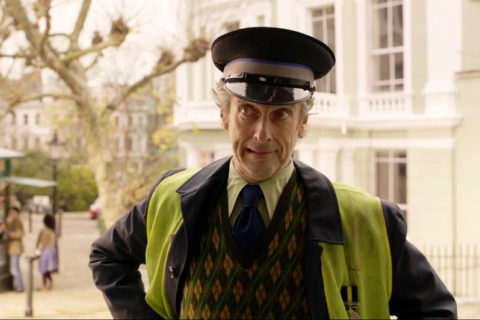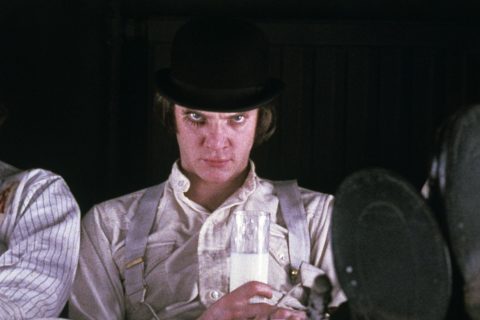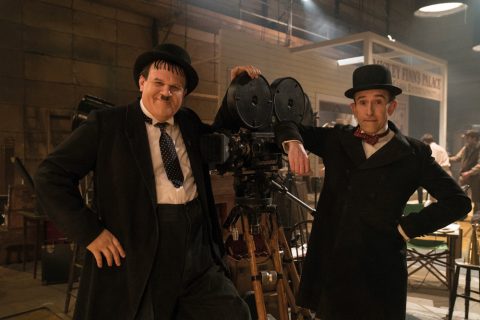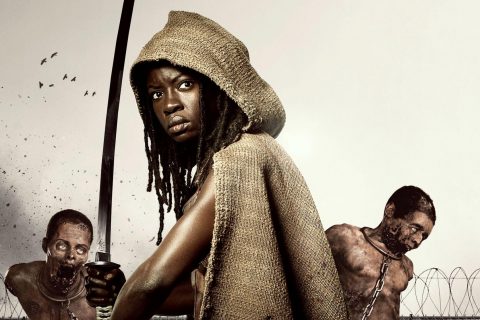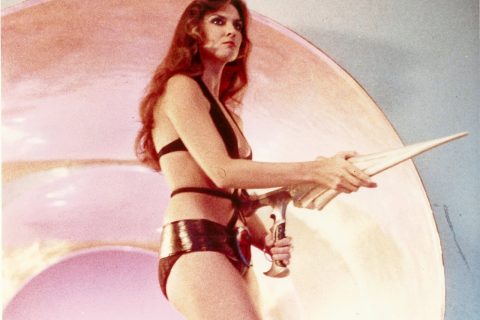If The Streets Were On Fire
Off the back of its well deserved BIFA nominations we revisit our chat with director Alice Russell
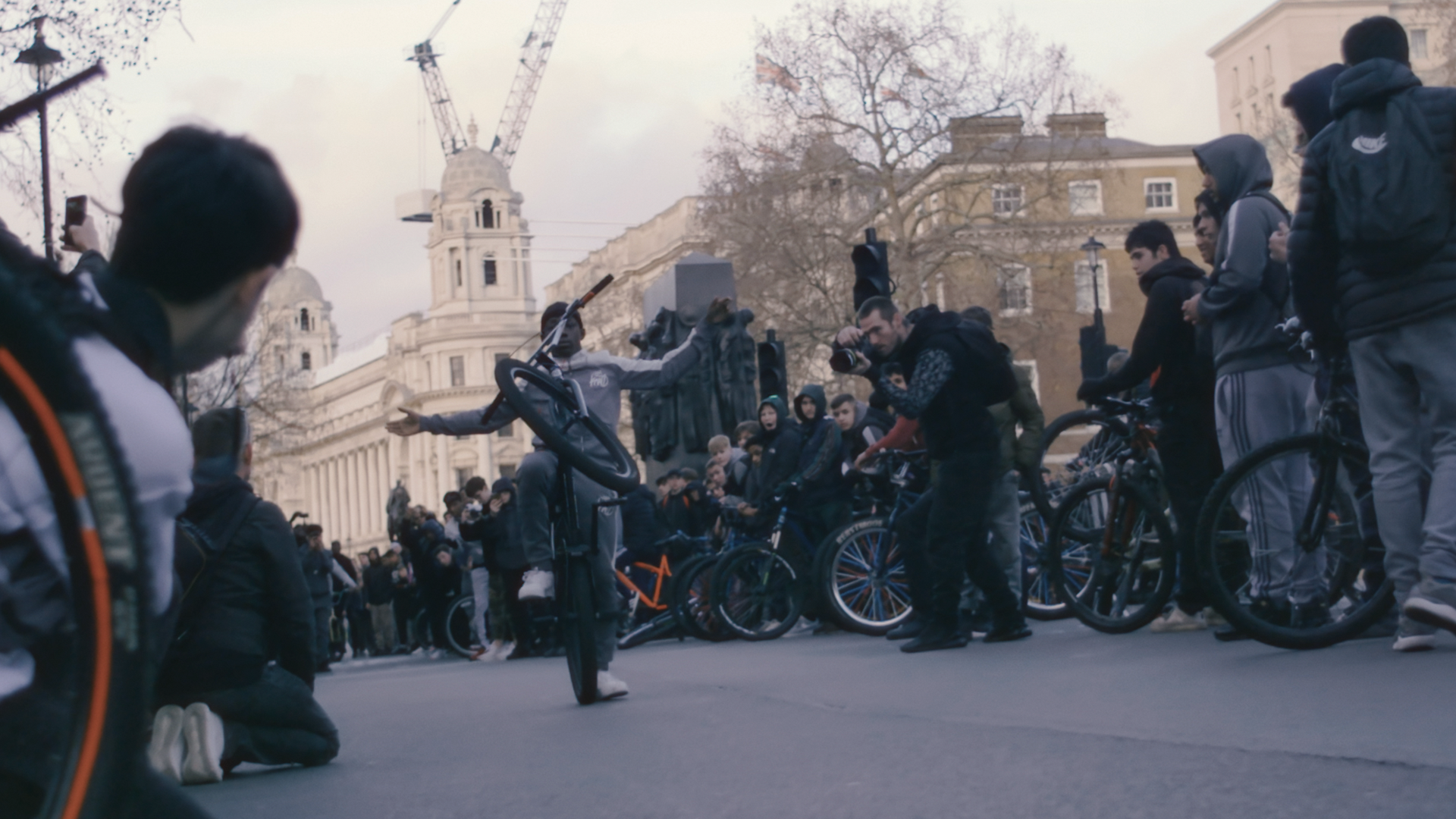
BikeStormz isn’t a cycling club – it’s a two-wheeled revolution, a grassroots movement that invites young people to escape the risk of street violence, encouraging them to put down knives and pick up bikes instead. When director Alice Russell first met Mac, founder of BikeStormz, to talk about making her debut feature about the organisation, she was struck by the candid yet poetic way he viewed his work. “In life you have to put kids on a track,” Mac said. “If you don’t put them on a track they’re walking on the gravel, and you can’t complain when gravel gets kicked up in your face.”
If The Streets Were On Fire follows Mac and the kids who use biking as an escape from the austerity caused by 12 years of Conservative rule in the UK. “It perfectly encapsulated what is going on in our country at the moment; how loads of young people are alienated from mainstream narratives, mainstream spaces and mainstream opportunities.” A keen cyclist herself, Russell filmed with the group for several years, catching their wheelies on camera as they regularly took to the streets of central London in rideouts under the sentiment of “bikes up, knives down”.
The film premiered in its hometown at the BFI London Film Festival. “Hilariously, I was the only one that actually came on my bike to the premiere,” Russell recalls. “The guys didn’t come on their bikes because they didn’t have bike locks.”
Some group members – in particular young dad, Miles – open up in front of the camera in intimate interviews that shine a light on the impact that street violence has had on London’s youth. Far from previous negative representations in media of youth at risk of violence, Russell’s film seeks a new narrative, revealing her subjects’ warmth, talent and potential, in defiance of a society that has written them off. As well as forming BikeStormz, Mac is also responsible for coining the title of the film, in attempting to contextualise the scale of violence to outsiders. He says, “You’d have to imagine the streets being on fire, but most people are not from this world and they can’t see the flames.”
With the film receiving BIFA nominations for Best Debut Director and Breakthrough producer, Russell talks through some of the film’s powerful images and how they were created.
“When I met [Miles’] mum, she was like, “Oh, Miles doesn’t talk” and I’d see him at the rides and he wouldn’t talk, but then when I’d get the camera out, I couldn’t stop him talking… stuff had been bottled up for so many years.”
“Miles would just invite me into his house, and we would sit for many hours and I’d get my camera out and film whatever he was doing and hang out, and it was lovely because he just spends so much time with his family and bikes are always around, and the kids pick it up through osmosis. It was very organic.”
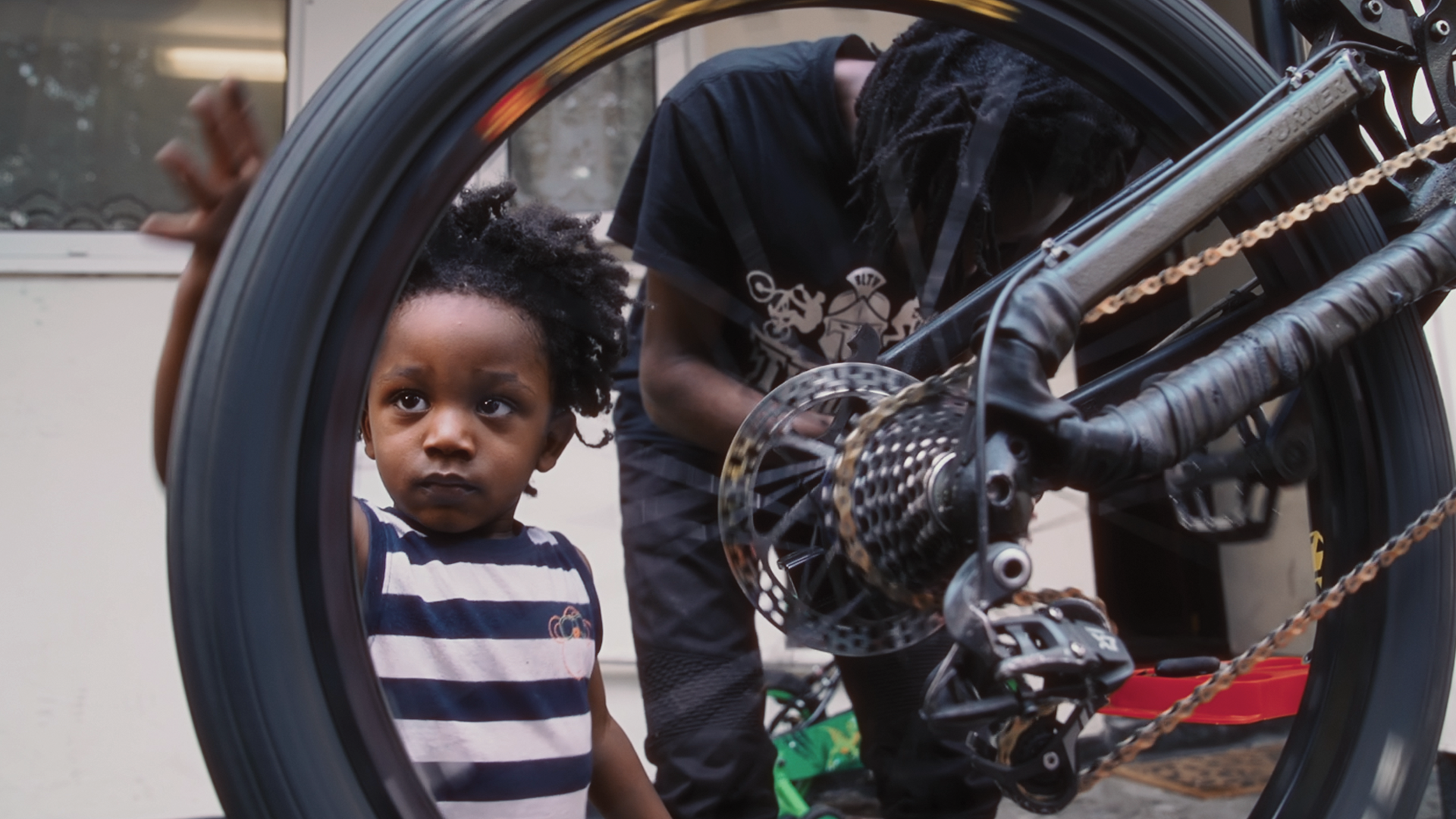
Russell filmed Mac leading a vigil for a friend who was a victim of street violence, and later captured an emotional moment on the street where the group share their love for each other. “You’ve been written off by your family, your community, society… you can’t really imagine what that might do to someone’s self-esteem – it destroys it, it smashes it. You’re in a place in the world where you’re like, ‘No-one cares about me, everyone’s told me I’m a failure, fuck you. I’m done.’ So for people to go out into the streets and go out into communities and say ‘I love you’ is just such a powerful antidote to feelings of hopelessness and low self-esteem.”
“We’d strap Ruben (cinematographer) into the front of [a cargo bike] with a big rig, and I’d be sat behind him with the monitor, and on the rideouts we’d just shoot in a really rogue, experimental way, just like ‘Go go go’, amidst the thousands of kids chaos. I really wanted to elevate this community through the visuals, because they’re stereotyped, because there’s all this negative press. I wanted to say, ‘Look how beautiful this thing is.’”
A small moment of comedic relief is provided by a pet lizard: “We’d had a lot of back and forth about whether to keep it in. We were saying, ‘We can’t have this scene, we’ve got to cut it, it’s not moving the story forward.’” explains Russell. “I said, ‘Guys, we’ve got to have some comic relief in here, because it’s such a strange and surprising moment.’”
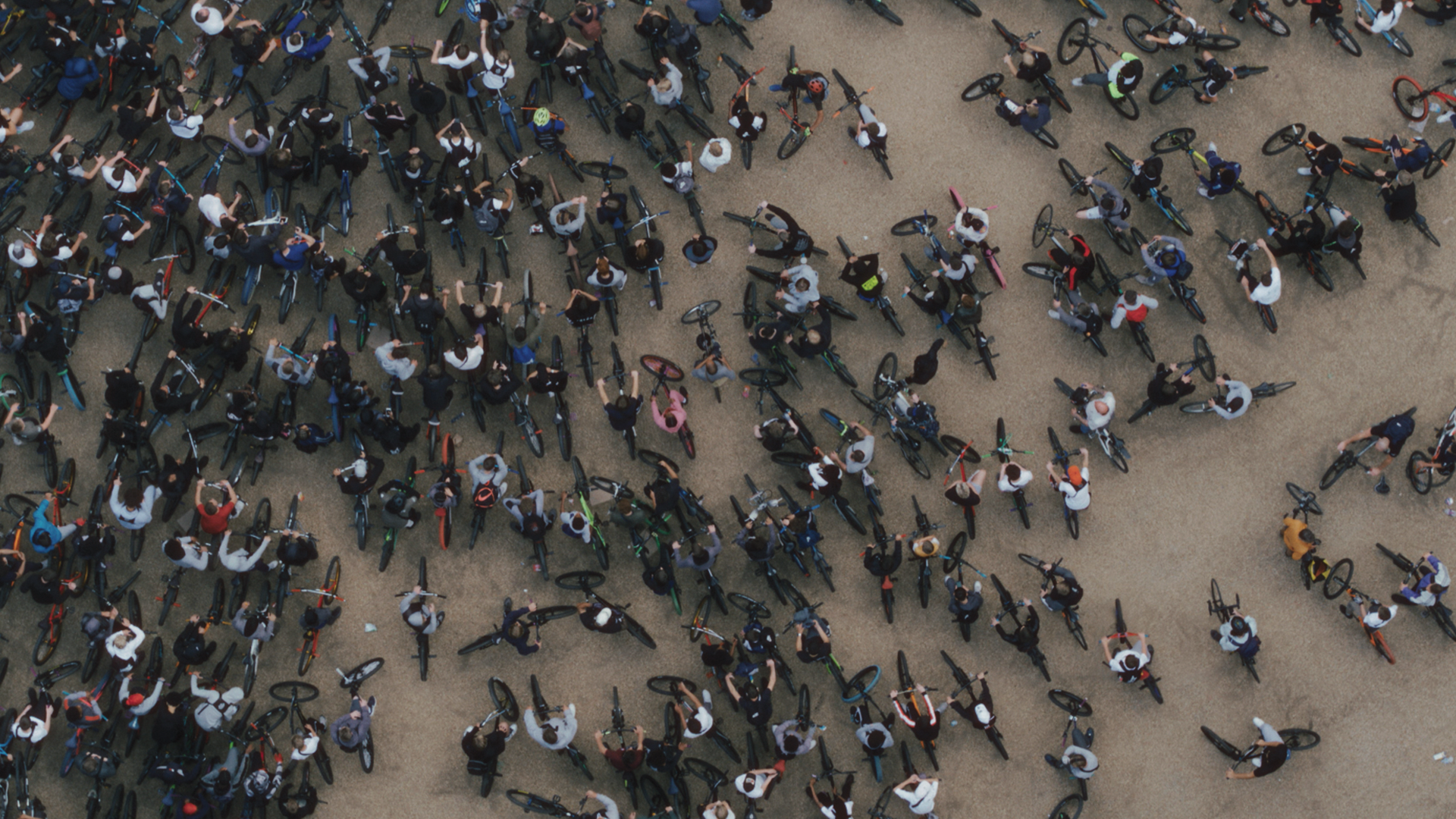
“With some of the BikeStormz events, I wished I could capture the scale a bit better, because it’s only until you see that image that you get a sense of the sheer number of people. So before one of the BikeStormz, I bought a drone out to tryand capture the scale.”
“I stood on a street corner at the balloon release of one of Miles’ friends who’d been stabbed, and sat on the corner for like, four hours with a group of these kids, and all of them were like, ‘Yeah, I’ve seen four people be shot.’ ‘Yeah, my mate got stabbed last week,’ as casually as saying, ‘Yeah, let’s go for a slice of pizza.’ They were so desensitised.”
“This world that they run away from to come into central London is such a wildly different, scarier, threatening place than the ilks of privatised, middle-class central London. That was the kind of push and pull that I found interesting. They’re not coming to cause trouble; they’re coming to get away from things and find escape and release and a tiny moment of freedom in a world that’s very oppressive.”
“Mac and Miles and loads of the boys are in Daniel Kaluuya and Kano’s Netflix film that’s out next year called The Kitchen – they were stunt riders in it. Some boys had just been in Top Boy. It’s created real opportunities for them. These kids have hearts and futures and are wonderful. When people hang out with them, they absolutely fall in love with them. They’re just so vibrant and silly and I’m really excited for people to meet them through the film.”
This interview first appeared in Industria Studios London ‘zine available for free from our shop.
